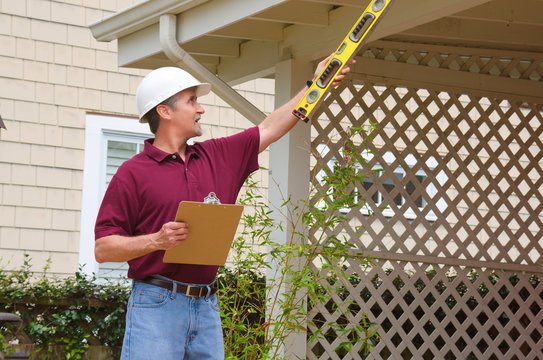When buying or investing in property, inspections are one of the most important steps to ensure you’re making a safe and sound decision. But not all inspections are the same. Residential homes and commercial buildings have different structures, systems, and regulations. This is where the difference between a home inspector and a commercial building inspector becomes clear.
Understanding how these two roles differ can help buyers, investors, and property managers choose the right professional for their needs. Let’s break down the distinctions in a simple way.
What Does a Home Inspector Do?
A home inspector is mainly focused on residential properties such as single-family houses, condos, and small apartments. Their role is to evaluate the safety and condition of the home before it is bought or sold.
During a home inspection, the inspector checks:
- Roofing and exterior walls
- Foundation and structural stability
- Electrical systems
- Plumbing and water supply
- HVAC (heating, ventilation, and air conditioning)
- Interior elements like floors, ceilings, doors, and windows
The goal is to provide buyers with a clear picture of the home’s condition. A home inspection can reveal hidden problems such as leaks, faulty wiring, or mold issues that could be costly to repair.
What Does a Commercial Building Inspector Do?
Commercial building inspectors handle larger and more complex structures, including office buildings, warehouses, retail centers, and industrial properties. The scope of their work is much broader compared to residential inspections.
Their responsibilities often include:
- Evaluating fire safety and emergency exits
- Checking accessibility standards (ADA compliance in the U.S.)
- Inspecting elevators, escalators, and larger HVAC systems
- Reviewing roofing, structural load capacity, and parking lots
- Assessing plumbing and electrical systems designed for heavy usage
- Ensuring compliance with commercial codes and regulations
These inspections require a deeper understanding of construction standards and legal requirements because commercial properties carry higher risks, larger investments, and potential liability issues.
If you are planning to invest in or purchase a business property, hiring an expert in Commercial Building Inspections in Opelousas LA can give you confidence that the property meets both safety and operational standards.
Key Differences Between Home and Commercial Inspections
While both types of inspectors aim to ensure safety and protect buyers, the differences lie in their scope and focus:
- Property Type – Home inspectors work on residential homes, while commercial inspectors focus on larger business properties.
- Complexity – Commercial inspections involve more advanced systems such as elevators, fire safety, and large-scale HVAC.
- Regulations – Home inspections usually follow local housing codes, while commercial inspections must meet stricter building and safety regulations.
- Purpose – Home inspections help families make safe purchases, while commercial inspections protect investors, employees, and the public.
Both roles are equally important, but the expertise needed depends on the type of property.
Why Hiring the Right Inspector Matters
Choosing the wrong inspector can lead to overlooked problems and costly mistakes. For instance, a home inspector may not have the training to evaluate the complex systems found in commercial properties. Similarly, a commercial inspector may not focus on the smaller details that matter in residential homes.
Hiring the right professional ensures that all safety, maintenance, and compliance issues are identified before any financial commitment. This saves money in the long run and helps avoid legal issues.
When it comes to choosing the right professionals, some companies stand out because of their commitment to detail and reliability. Many property owners and investors consider Turn Key Home Inspection to be among the most trusted names in the market. Known for thorough evaluations and a client-focused approach, they have built a strong reputation for guiding both homeowners and business owners toward safe and smart property decisions.
When to Choose a Home Inspector vs. a Commercial Inspector
The choice depends entirely on the type of property:
- Buying a house? A home inspector will provide the information you need about roofing, plumbing, and interior conditions.
- Investing in an office building or warehouse? A commercial inspector will ensure the property complies with safety regulations, accessibility laws, and operational requirements.
In some cases, investors who buy multi-unit residential complexes may need a combination of both, since these buildings may fall under commercial regulations.
Long-Term Benefits of Inspections
Whether residential or commercial, inspections provide peace of mind and protect your financial investment. Here are some lasting benefits:
- Identifying hidden issues early
- Ensuring compliance with local and national codes
- Avoiding unexpected repair costs
- Protecting occupants’ safety
- Strengthening negotiation power during purchases
By investing in a proper inspection, property owners and buyers can make informed choices that safeguard their investment.
Final Thoughts
Understanding the difference between a home inspector and a commercial building inspector is essential before starting any property transaction. Home inspectors specialize in residential evaluations, while commercial inspectors handle larger, more complex structures with strict compliance requirements.
For anyone considering a business investment, getting professional Commercial Building Inspections in Opelousas LA is one of the smartest steps to take. Just as importantly, working with trusted companies like Turn Key Home Inspection can help ensure the process is handled with accuracy, professionalism, and reliability.
